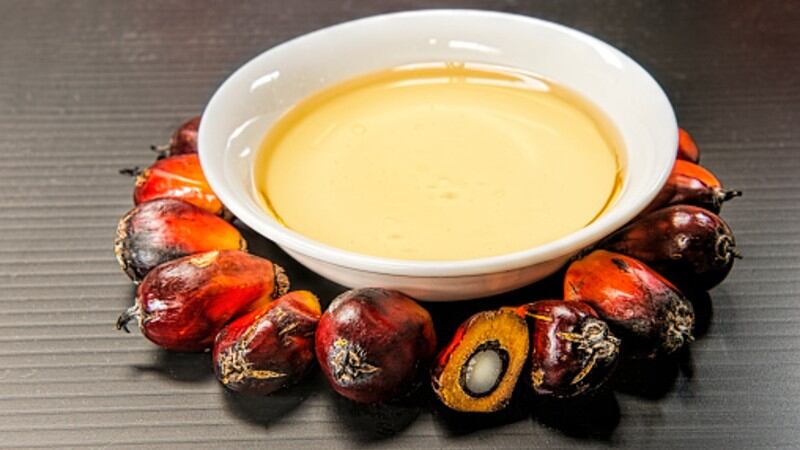The gap analysis was funded by the EU and conducted by the European Forest Institute (EFI). Its findings were recently presented via an online forum conducted by the Malaysian Palm Oil Council (MPOC), which FoodNavigator-Asia attended.
According to EFI Technical Expert Dr Josil Murray, the analysis had identified four major ‘information gaps’ in the Malaysian Sustainable Palm Oil (MSPO) certification scheme, which covered areas across geolocation, deforestation-free, legal and traceability issues.
“For geolocation, at present polygon information in line with EUDR requirements is not available [and] are not in a format that can be transferred along the supply chain,” she told the floor.
“MSPO also defines ‘forest’ differently from the EUDR/FAO, and legally there is information lacking in terms of human rights protected under international laws.
“In terms of traceability to link palm oil products back to a plot of land, palm oil products by smallholders and sold via dealers cannot yet be traced back [and the] MSPO Trace platform is currently not optimal for the transfer of information.”
In response to these and other ‘gaps’ identified by EFI, MSPO Manager Certification & Operations Services Chee Yong Tan highlighted multiple potential solutions that the organisation is working on.
“Some of the geolocation solutions include upgrading MSPO Trace so that geolocation information in line with the EUDR can be uploaded and transferred along the supply chain, as well as linking this platform with the Malaysian Palm Oil Board (MPOB) Geopalm Portal which does have the geolocation information in line with EUDR requirements,” he said.
“We are also exploring the alignment of the MSPO ‘forest’ definition with that of the EUDR/FAO, and believe we can also include in the certification guidance a list of the relevant international conventions to which Malaysia has ratified and which hold legal force, particularly in relation to human rights.
“The revised MSPO 2022 Standards also include a standard for palm oil dealers (which buy a lot of the smallholder palm oil for trade) – the certification of these dealers will thus enable smallholders to be included into supply chains selling to the EU market.”
When queried whether all of this is expected to be ready by the time the EUDR is enforced at the end of 2024, Tan highlighted that MSPO will be going for a ‘relevance over volume’ approach.
“Instead of looking at doing this in terms of volume and try to fit all the palm oil from the whole of Malaysia, it would be best to focus on those players that are definitely selling palm oil to the EU,” he said.
“One of the solutions we are looking at which is to upgrade PalmTrace will include challenges like figuring out the inclusion of relevant EU operators and requiring them to register as buyers in this platform to allow access to the relevant supply chain information – this sort of upgrade will definitely need some time.”
The bigger question remains as to whether - even if MSPO complies with all of these requirements from the EUDR and invests into making all these changes – the EUDR will be willing to accept it as a satisfactory standard that allows palm oil with this certification to be accepted as ‘sustainable’ by its standards.
In fact, according to Dr Murray, it is highly unlikely that any sort of auto-inclusion will be afforded any time soon.
“The whole point of the EUDR is to ensure due diligence is performed by operators in the EU, so it is unlikely to say that this palm oil is MSPO-certified therefore it is considered to be automatically compliant with requirements, as this would take away the due diligence process,” she said.
“There are many, many schemes out there and it would be very tricky for the EU to say this one is compliant and this one is not.”
Problematic finger-pointing
That said, industry experts have criticised the EFI gap analysis as another attempt to defend the EUDR, which has long been decried in terms of expecting producer markets to bend over backwards to accommodate their demands but offering no guarantee of acceptance.
“The position taken by EFI simply appeared to defend the EUDR is faultless, and point out the supposed shortcomings of MSPO in providing the information required for EUDR compliance, and in passing the information through the supply chain for compliance,” palm oil industry expert Khalil Hegarty told us.
“The problem with this position is twofold - First, the more detailed guidance for the EUDR is yet to be released, so those information requirements are actually still not clear.
“Second, when it comes to problems in passing the information up the supply chain, even with more complicated processed products [these] have been pointed out by multiple industries, commodity producers and governments, including EU states themselves [so can this be considered] a shortcoming of MSPO? We don’t think so.”
Further ire was sparked during the forum after a question on why EUDR requirements have not been made mandatory for other currently unimpacted commodities such as sunflower oil or rapeseed oil was posed.
“The current commodities that have been imposed with EUDR are ones that were determined to be most commonly associated with deforestation drivers,” EFI palm oil sustainability dialogue project KAMI’s Project Manager Jeremy Broadhead told the floor.
“This was based on the assessment of objective data after years of study.
“Much of sunflower and rapeseed may be on land that was cleared much earlier and as such were not listed as contributors.
“Any changes to the commodities list will likely only come after the EUDR has been enforced and [further analysis] is conducted.”





